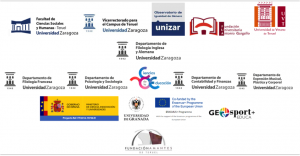
LAURA ALBA-JUEZ
Persuasive strategies and emotion manipulation in journalistic discourse: The case of fake news
My talk will be mainly based on our findings (Alba-Juez & Mackenzie, in press) related to the general characteristics of the discourse of fake news and the types of manipulation found in this subgenre of journalistic discourse. By means of the analysis of samples of fake news in English and Spanish I will show how this kind of journalism aims at manipulating the readers’ emotions not only by the use of prototypical lies (i.e. assertions whose content the speaker believes to be false, uttered with the intention to deceive the hearer), but also and mainly by means of complex discourse-pragmatic strategies such as the skillful manipulation of the three main Appraisal subsystems, ATTITUDE, ENGAGEMENT and GRADUATION (Martin & White 2005), the triggering of deceptive presuppositions and emotional implicatures (Schwarz-Friesel 2010, 2015) or the display of misleading images, thus playing with the scalarity of lying (Meibauer 2018). This in turn leads us to some important conclusions showing that the fact that the linguistic expression of falsity can be scalar has a tight connection with the concept of bullshit (Frankfurt 2005) and post-truth (Keyes 2004): A good story that somehow touches the readers’ emotions, even if it is deceiving, prevails over a true story, because the readers choose to accept as true what makes them ‘feel good’. Also, when dealing with the characterization of the (manipulated) emotion processes found in fake news, my talk will be focused not only on the identification of the different emotion processes expressed, but also on those triggered in the readers or audience, based on the evidence that emotion processes are dynamical and therefore display relational work (Locher & Watts 2008): In line with Russell (1991), the analysis performed here rejects the idea of describing emotion as a static thing, in favor of conceiving it as a sequence of subevents (causes, beliefs, feelings, physiological changes, overt actions, vocal and facial expressions, and desires). And even though Martin & White’s (2005) Appraisal Model can be said to be the most complete and elaborate linguistic theory of evaluation (including emotion) to date, it cannot be said to account for many of the (socio)pragmatic aspects that interact with language to convey emotive meanings. Thus, I will also argue in favour of the methodological need for the development of finer and more specific parameters for the characterization of emotion in discourse (in particular (here) the discourse of fake news) than those found in the Appraisal Model for the subsystem of AFFECT. In this endeavour my work will be multidisciplinary, and I will draw on the findings of studies such as Benítez Castro & Hidalgo Tenorio (2019), as well as on some concepts coming from the field of sociopragmatics and the psychological appraisal theories, in an attempt to refine the Parameter variable of the Emotive Functional Relationship (Em = F(PH, LL, Deg, ContPos, P, Mo) previously proposed and developed for the analysis and comprehension of emotion processes in discourse (Alba-Juez 2018).
Laura Alba-Juez is Full Professor of Linguistics at the UNED in Madrid, Spain. She holds a Master’s degree in Applied Linguistics from the UNAM (Mexico), and a Ph.D. in Linguistics from the Complutense University of Madrid, Spain. From 1997 to 2001, she held the positions of Visiting Researcher and Lecturer at Georgetown University (Washington D. C., U.S.A.). In 2013 she stayed at King’s College London (University of London, U.K.) as a visiting Senior Research Fellow in the Center for Language, Discourse and Communication. Her main areas of research are Discourse Analysis and Pragmatics. She has been the Principal Investigator of several projects, the last one being the EMO-FunDETT project (2014-2018, funded by the Spanish Ministry of Economy and Competitivity), which studied both the emotive and persuasive functions of language in work situations, i.e. corporate and institutional discourse. She has published fourteen books and numerous scientific articles. Her three last books are Evaluation in Context (in co-edition with Geoff Thompson, 2014, John Benjamins), Pragmatics: Cognition, Context and Culture (in co-authorship with J. Lachlan Mackenzie, 2016, McGraw Hill), and Emotion in Discourse (in co-edition with Lachlan Mackenzie, 2019, John Benjamins).
FRANCESCA DE CESARE & CRISTIÁN SANTIBÁÑEZ YÁÑEZ
La fuerza persuasiva de la imagen en el discurso de la gestación subrogada
En esta presentación procuramos integrar los campos de estudio de la teoría de la argumentación y el análisis crítico del discurso. Para tal efecto, analizamos los argumentos visuales que promueven la ideología e intereses subyacentes en las campañas comerciales de las empresas dedicadas a la gestación subrogada. Nuestros objetivos son: identificar y analizar las estrategias persuasivas específicas que se utilizan a través de la imagen para construir un tipo de hablante ideal; identificar y analizar cómo, a través de tales estrategias, se promueve un determinado tipo de noción de maternidad y paternidad; e identificar y analizar las maniobras estratégicas a través de las que se construye un tipo de audiencia. Desde el punto de vista teórico, planteamos primero la continuidad estructural existente entre los argumentos verbales y visuales y problematizamos la noción de cognición distribuida para arrojar luz sobre una posible concepción de lo visual persuasivo. Desde el punto de vista del corpus metodológico, ofrecemos una serie de imágenes de empresas dedicadas a la gestación subrogada con un claro propósito persuasivo de venta de sus servicios y productos, y reconstruimos los argumentos que tales imágenes contienen. Entre nuestras conclusiones, abiertas a la discusión, indicamos que tales empresas utilizan un discurso fuertemente emocional que puede, con facilidad, identificarse como manipulador, y que la construcción del ethos del(los) hablante(s), en vez de manifestarse bondadosa, como explícitamente podría pensarse, en realidad desvela una posición populista y misericordiosa.
Francesca De Cesare holds a PhD in Iberian Studies at the University of Bologna, and is currently a Senior Lecturer in Spanish Linguistics at the University of Naples “L’Orientale”. Her research thus far has focused on the study of the discursive construction of several social, economic and political phenomena in the Spanish press, as well as in political speeches and programmes. To do so, she has drawn extensively on corpus-assisted (critical) discourse analysis, framing theory, and conceptual metaphor theory. Among her most recent publications, of particular interest is her research on populist discourse, as evidenced in a co-edited issue in the I-Land Journal (December 2017) and the co-edited volume Populist Discourse: Critical Approaches to Contemporary Politics (Routledge; March 2019). Since 2016, she has been the Deputy Director of the I-Land (Identity, Language and Diversity) Interuniversity Research Centre.
Cristián Santibáñez is Professor at the Department of Language and Literature Sciences, at Catholic University of the Holly Concepción, Chile. He studied Sociology and Linguistics, and obtained his Ph.D. (2005) at the University of Houston, USA, and did a postdoctoral internship at the University of Amsterdam (2009). He develops research on argumentation theory, reasoning psychology, epistemology and cognition. He has been a professor and visiting professor at the universities of Buenos Aires (Argentina), Diego Portales (Chile), del Valle (Colombia), EAFIT (Colombia), Granada (Spain) Lugano (Switzerland), Michigan Technological (USA), San Marcos (Peru), Tucumán (Argentina), UNED (Spain), Windsor (Canada). His last book is Origen y función de la argumentación. Pasos para una explicación cognitiva y evolutiva. Lima: Palestra Editores.

MATTEO FUOLI
How persuasive is persuasive discourse? Using experimental methods to assess reader response empirically
Persuasion and manipulation have been central concerns of Critical Discourse Analysis since its beginnings (e.g. Van Dijk 1996). Traditionally, the persuasive properties of texts have been explored by means of interpretive analysis. The actual perlocutionary effects of the strategies identified through this process, however, are rarely empirically tested. As a result, CDA has often been critiqued for presenting subjective readings based on political motivations rather than empirically grounded analyses (Widdowson 2004). In this talk, I aim to show that experimental methods offer a valuable means of verifying claims concerning the persuasive properties of texts. To illustrate this argument, I will present the findings of three recent experimental studies in which I address persuasive features of corporate and political discourse. The first study (Fuoli and Hart 2018) uses a scenario-based experiment to test the effects of trust-building strategies in corporate public-facing communication. The results show that evaluative language can enhance readers’ perceptions of the trustworthiness of company accused of questionable behavior. However, contextual factors such as the strength of the evidence against the company and individuals’ generalized beliefs about corporations also play a significant role. The second study focuses on corporate crisis communication. It shows that blame-avoidance strategies aimed at obscuring agency, such as the use of passive voice or nominalization, can actually backfire and lead to further damage to a company’s reputation. The results of these two studies, in line with (Chilton 2005), thus demonstrate that readers are more skeptical and less susceptible to manipulation than is sometimes assumed in CDA research. The third study, conducted in collaboration with Chris Hart (Lancaster University), assesses the effects of two epistemic legitimization strategies which are frequently used in political discourses seeking justification for military interventions, namely subjectification and objectification (Hart 2011). The experiment tests the hypothesis that speakers appear more credible when they are able to attribute their knowledge to reliable sources, especially when their trustworthiness has been cast into doubt (Van Dijk 2011). These studies demonstrate that experimental techniques can usefully complement traditional discourse analysis methods by allowing researchers to test hypotheses about the effects of texts and thereby gain new and empirically-grounded insights into the discursive dynamics of persuasion, social influence and power.
Matteo Fuoli is a Lecturer in Corpus-Based Discourse Analysis in the Department of English Language and Linguistics at the University of Birmingham (UK). His research takes a mixed-method approach to the study of business communication, exploring how companies use discourse to negotiate public trust and social legitimacy from both a theoretical and empirical perspective. A more detailed presentation of Matteo Fuoli’s research is available at: https://www.birmingham.ac.uk/staff/profiles/elal/fuoli-matteo.aspx

JOSÉ MARTÍN-ALBO
“Motivation, persuasion and teachers”: Self-regulated motivation and educational persuasion
Persuasion has been defined as the ability or skill to convince a person through reasons or arguments to think in a certain way or do something. In recent years, numerous studies have been conducted on the role played by persuasion in different fields (e.g. politics, social opinion, marketing, education, etc.), particularly on how it can motivate us towards a particular goal. In the educational context, one of the tasks that we have as teachers is to convince students that all learning content is useful and, more importantly, that they can achieve their goals of learning, thus reducing academic failure resulting from lack of motivation. In general, motivation has been defined as the (internal or external) processes that orient and maintain our behavior to achieve a goal. As for persuasion, it has to do with instilling a new motivation in the other, mobilizing all cognitive, affective and behavioral resources towards a new goal. Currently, one of the motivational theories with more scientific evidence is Self-Determination Theory (SDT) (Deci & Ryan, 2000, 2017). SDT claims that motivation is a continuum ranging from amotivation (i.e., where the person is completely alienated from their own conduct) to self-regulated motivation, (i.e., where the subject perceives that they have complete control of their behavior). This theory poses that the highest levels of self-regulated motivation depend on the satisfaction of basic psychological needs (autonomy, competence and interpersonal relationships). Numerous studies in the educational context lay stress on the relevance of the role of the teacher as a key element within the context to generate motivating environments, in other words, persuasive, where the student is convinced that they will achieve their learning objectives with the resources available (e.g. Núñez, Martín-Albo, Paredes, Rodríguez & Chipiana, 2011). Many studies have analyzed the impact of the information provided by the teacher at the beginning, during and at the end of the teaching / learning activities on the students’ motivation and performance (e.g., Niemiec & Ryan, 2009). In particular, studies have analyzed the role of the type of feedback that teachers make available to students during and after the task. In this sense, the language (verbal and non-verbal) used by the teacher can be key to understanding the effectiveness of feedback and their persuasive effect on learning.
José Martín-Albo holds a degree in Psychology from the Complutense University of Madrid. From 1996 to 2009 he was a Lecturer at the University of Las Palmas de Gran Canaria, where he obtained a PhD in Psychopedagogy. Since 2010, he has worked as a Senior Lecturer and researcher in the Department of Psychology and Sociology of the University of Zaragoza. His research has focused on the development of motivational models applied in contexts of achievement, mainly sports and education. He has published numerous high-impact articles (JCR index) related to the study of self-regulated motivation and emotional self-regulation in the adolescent population. Since his arrival at the University of Zaragoza, he has combined his research and teaching with management and administration, having been Coordinator for the Degree in Psychology, Deputy Director of the Department of Psychology and Sociology and, currently, Dean of the Faculty of Social and Human Sciences at the University of Zaragoza.

PASCUAL PÉREZ-PAREDES
Constructing international students in UK universities after the Brexit referendum
Despite the consensus that “identity” fails to recognize the complexity and context-sensitive nature of discursively constructed social processes (Jones & Kryzanowski, 2008), mass media do encourage the formation of collective identities that are characterized by a suppression of a sense of belonging and a reductionist categorization of migrants. This research looks at the construction of international HE students in the UK during a 3-year period immediately after the Brexit referendum. Two corpora representative of different political tendencies, Labour in the case of The Guardian, and Conservative in the case of the Daily Mail, were compiled. Using a combination of different corpus linguistics methods (keyword analysis, collocational profile and colligation analysis), together with qualitative analysis, our research examines the emergence of themes in the discursive construction of international students in the UK press. Our results lend evidence to the fact that HE students are constructed around different themes (Baker, Gabrielatos & McEnery, 2012) in the two newspapers analysed: while the Daily Main prefers to frame them as part of the net immigration debate, the Guardian uses them to pursue an anti-Brexit agenda. We will discuss a model that integrates the notion of acknowledgement of the contributions of these students to the UK economy as well an ideological framing of diasporic communities that masks more complex social processes such as transnationalism and the role of HE in neo-liberal economies.
Pascual Pérez-Paredes is a Lecturer in Research in Second Language Education at the Faculty of Education, University of Cambridge. His main research interests are learner language variation, the use of corpora in language education and corpus-assisted discourse analysis. He has published research in journals such as CALL, Discourse & Society, English for Specific Purposes, Journal of Pragmatics, Language, Learning & Technology, System, ReCALL and the International Journal of Corpus Linguistics. He is the Overall Coordinator of the MEd Research Methods Strand at the Faculty of Education, University of Cambridge. For more info: http://www.educ.cam.ac.uk/people/staff/perez-paredes/

ADELINA SÁNCHEZ ESPINOSA
Resisting cultures of inequality through countervisuality practices in recent Spanish fiction and non-fiction cinema
My contribution starts by looking at the relationship between gender and visual discourse, focusing upon theories of “the gaze” in Laura Mulvey (1975) and of the “right to look” and “countervisuality” in Nicholas Mirzoeff (2011). Next I will move onto the concept of “situated knowledges” by Donna Haraway (1988) so as to analyse to what extent situated feminist gazes in fiction and non-fiction cinema have the power to resist gender cultures where inequalities have been legitimised, naturalised and made invisible. I would like to use this framework as a basis to explore how film discourses can indeed operate as technologies of social respose-ability and accountability before the challenges present in the current feminist agenda in Spain. To that effect I will review Spanish classic fiction-films such as Te doy mis ojos (Iciar Bollain, 2003) or Los años desnudos (Dunia Ayaso y Felix Sabroso, 2008) and recent documentaries such as Yo decido. El tren de la libertad (Chus Gutiérrez et al, 2014) Yes, we fuck (Antonio Centeno and Raul de la Morena, 2015), or Serás Hombre (Isabel de Ocampo, 2018)). The research presented in this talk is one of the results of the GRACE “Gender and Cultures of Equality in Europe”, Horizon 2020, Marie Curie Research Project. WP4: Textual and Artistic Cultures of Gender Equality. Visualising Gender Equality in Europe through Art and Screen.
Adelina Sánchez Espinosa is Senior Lecturer in English Literature at the University of Granada, Spain. She is Scientific Coordinator of GEMMA: Erasmus Mundus Master’s Degree and Consortium in Women’s and Gender Studies (a joint project that brings together 20 universities and 38 industrial partners in Europe and America); and PI at the University of Granada for the H2020 MSC (Marie Curie) GRACE “Gender and Cultures of Equality in Europe” Project and the “Recepción, modos y géneros de la literatura en Lengua Inglesa” (Reception, modes and gender in English Literature) Research Group. She belongs to the board of experts on Gender Studies for the European Science Foundation, in charge of ERIH (European Research Index for the Humanities). Among her most recent publications outstand “The Film Text as Palimpsest: Translating Women’s Gazes from Page to Screen” (2011, Peter Lang); “Feminist Approaches to Close Reading” (co-authored with Jasmina Lukic; 2011, Routledge); “Bodies in Siege: Thomas Hardy and Victorian Fin-De-Siècle Sexual Politics” (2012, Lodz University Press); “Reading Between the Lines in Late Victorian Fiction: The Case of Thomas Hardy” (2013, Punctum); “Bauman’s Liquidity and Women’s Transnational Action in Higher Education” (2014, Università L’Orientale); “Perspectives in Gender Studies: Spain” (About Gender, 2015); “Feminist Politics of Responsibility and Art therapy” (coauthored with Ángela Harris; 2017 Routledge).


